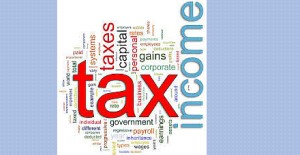Planning for the inevitable: Taxes
As the saying goes, there are some things in life that are inevitable, thunder, lightning, death and of course taxes, indeed taxes are inevitable to every adult, irrespective what you do for a living, whether you are an employee or a business owner, you definitely would pay taxes.
In spite of this, taxes are the most overlooked activity in financial planning, but it really is at the heart of financial planning and very crucial because it is one of the factors that can reduce the investor’s wealth. Taxes are compulsory and there is a huge consequence to any individual or business who tries to evade taxes. If you follow the news, you would have heard about some celebrities or famous people who tried to evade paying their taxes and end up paying dearly for it in jail or by paying huge fines.
Just as all employees pay taxes, an investor is expected to pay taxes on the proceeds of their investments. There are several taxes on investments, such as dividend taxes, capital gains tax, and savings account interest tax, personal tax, corporate tax. If you invest in real estate, you would be faced with rental income tax, real estate sale tax etc.
As a regular investor, you may feel that this is inconsequential but it is important to understand how taxes affect your finances. Tax planning involves various activities undertaken to minimize tax liability by making good use of all available allowances, deductions, exclusions, exemptions to reduce income and/or capital gains. The purpose of tax planning is to figure out how to accomplish all other elements of financial planning in the most tax efficient manner. Basically, tax planning should allow the other elements of your interact more efficiently by minimizing tax liability.
It may seem complicated, but over time it will become much clearer. For example, as a business owner, it is important to know all allowable deductions when filling your taxes, for example mileage, airfare, hotel payments etc. incurred when running your business. Another way an investor can reduce taxes is by investing in a tax deferral account like a 401k, IRA, in the US, or in Canada, TFSA or RRSP. A tax deferral account allows you investment to grow tax free or taxes are deferred to a time in the future such as in retirement when the tax impact would be a lot lower.
Like most investment activities, tax laws and concepts may be difficult to understand, it is important to consult with a tax professional or tax planner who helps business owners and individuals understand tax laws. Tax Planners help their customers reduce their tax liability, they also help files taxes and can assist with estate planning.
Success.
